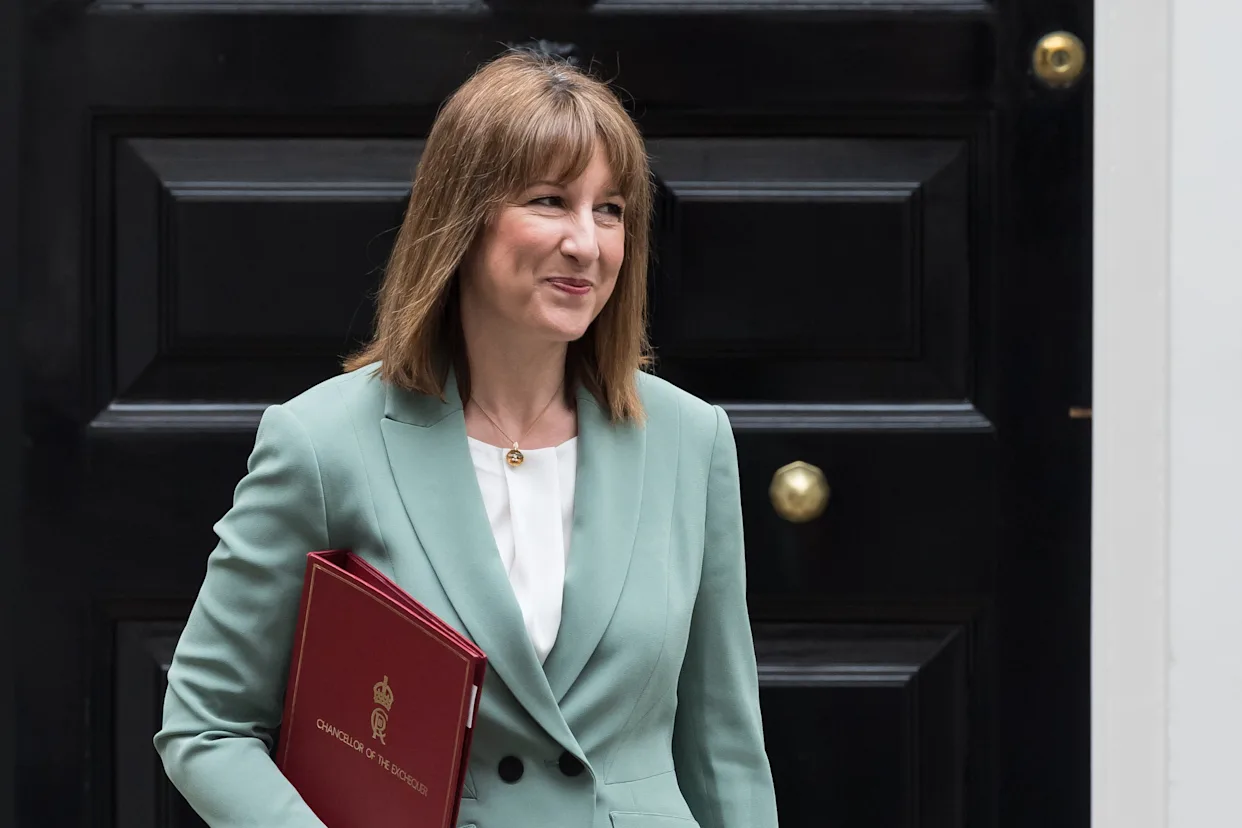Chancellor Rachel Reeves stood before her Labour MPs yesterday with a message that cut through the Westminster fog like a winter chill. Fall in line behind this Budget, she urged, or watch the next election slip away. Her words carried the weight of a nation on edge. "It's a package, not a pick-and-mix," she declared. This isn't mere party pep talk. It's a raw alert to every household in the UK that tomorrow's Autumn Budget 2025 will deliver tough medicine for the economy's lingering ills.
Reeves has built her reputation as the no-nonsense guardian of the nation's finances. She paints herself as the one who pores over spreadsheets late into the night. Yet even she admits the plan ahead will leave a bitter taste. Most MPs, she said, will embrace 90 to 95 percent of it. The final five percent? That bites harder.
But scrap any piece, and the entire structure crumbles. For families still reeling from soaring bills and stagnant wages, this Budget promises to touch every corner of daily life. Homeowners brace for mortgage shifts. Renters eye potential welfare tweaks. Pensioners watch inheritance rules. Motorists and investors alike sense the ripples. It's the fiscal blueprint that could redefine security for millions.

Chancellor Rachel Reeves outlines plans to increase some taxes in the November Budget.
A Chancellor Under Siege and a Nation Holding Its Breath
Whispers from that tense meeting paint Reeves as both fierce and forthright. One insider called her tone strong and honest. Another detected a thread of desperation in her call for solidarity. These cracks in Labour's front line echo the fractures across the country. Voters crave escape from the cost-of-living squeeze yet recoil at fresh tax burdens. They demand a revitalized NHS without ballooning debt. They yearn for tamed inflation paired with bold public investments. Reeves navigates this minefield barefoot, her every step shadowed by the ghosts of 2008's crash.
The pressure mounts from her self-imposed fiscal guardrails. Debt must start falling within five years, a rule etched in stone. Growth projections limp along. Borrowing costs cling stubbornly high. Options dwindle like sand through fingers. This Budget, poised for delivery on November 26, 2025, stands as the boldest economic pivot since the financial meltdown that upended lives nearly two decades ago. It stirs a quiet dread in kitchens and boardrooms alike. Will it heal the wounds or reopen them wider?
The Budget's Beating Heart: Stability, Support, and Sacrifice
At its core, Reeves' vision pulses with a drive for enduring calm after years of chaos. She aims to recast government as the builder of firm foundations, not just the fixer of fires. Targeted welfare adjustments top the list, easing strains on the lowest earners. Energy levies might hold steady or dip slightly, offering a breather amid volatile bills. And those fiscal drags—subtle shifts that nudge workers into steeper tax bands—could face curbs to let pay packets stretch further. Consumer trust hangs by a thread. Without real cash in pockets, no recovery takes root.
Shorter NHS queues emerge as more than a health fix. They unlock workers sidelined by illness, now numbering over 2.8 million in long-term sickness. This drag saps productivity and stiffens the job market. Reeves sees it as a smart economic multiplier, turning waiting rooms into workplaces. Then comes the debt beast, devouring more than the schools budget in interest alone. Each rate spike feeds it fatter. Tax hikes loom inevitable to starve the monster and reassure jittery markets. It's a grim math that leaves no wallet untouched.
Reeves eyes lifting the two-child benefit cap, a move that could lift 250,000 children from poverty's grip. Scrapping it demands billions upfront. Yet it signals a pivot toward sharper welfare tools matched with wider tax shares. Right-wing voices decry it as handouts over hard choices. Left-wing allies label it stingy still. For Reeves, it's the narrow bridge balancing her debt vow with a softer edge on inequality. The emotion runs deep here. Families have clawed through lean years, only to face choices no parent should make.
The Tax Terrain: Stealth Moves and Market Ripples
Reeves draws a firm line on income tax rates. No hikes to the basic or higher bands, honoring manifesto vows and dodging instant backlash. Relief washes over many at that news. But the escape feels fleeting. The real sting hides in frozen thresholds, a quiet engine pulling earners upward into heavier levies as wages creep ahead of inflation.
According to analysis reviewed by Finance Monthly, this extension could harvest £7.5 billion extra from workers nationwide. It's the chancellor's ace for revenue without fanfare. Paul Johnson, director of the Institute for Fiscal Studies, captured the sting in stark terms. He warned of a "nasty set of tax rises" lurking in the Budget, ones that hit quietly but hard.
Other ideas bubble up too. A tax on homes topping £2 million in value sidesteps broader council tax overhauls, targeting wealth without widespread pain. Electric vehicle levies might follow as the shift accelerates. Gaming and betting firms could shoulder more, clipping profits from an industry flush with cash. None alone plugs the hole. Combined, they stitch a fiscal safety net. The City watches warily. Reeves has earned nods for her steady hand among investors. Sterling could twitch on surprises. Gilt yields might spike if borrowing tightens. Banks recalibrate on clearer demand signals. Property flows shift if luxury homes bear the brunt. She crafts a narrative of a Britain reborn in reliability. Markets will vote with their moves by day's end.

Chancellor Rachel Reeves outlines proposed exit and mansion taxes ahead of the November 2025 Budget, aiming to address the UK’s fiscal gap.
The Invisible Tax Squeeze Reshaping Your Income
Fiscal drag works like a sneaky current in a river, pulling you deeper without you noticing until you're in over your head. In simple terms, it's what happens when government income tax thresholds—those cutoff points deciding your rate—stay stuck while your salary rises with inflation or promotions. You end up owing a bigger slice of your earnings, even if rates haven't budged. Reeves' likely extension of this freeze turns it into a powerhouse for raising funds, projected to net £7.5 billion by dragging millions across band lines.
Take Sarah, a 38-year-old teacher in Manchester earning £35,000 last year. Her pay rose 3 percent to match living costs, landing her just over the higher-rate threshold at £50,271. Without adjustment, she now forfeits an extra £600 annually to taxes, money that could cover groceries or a family outing. This isn't abstract policy. It's the quiet erosion of take-home pay affecting over 1.5 million workers yearly, per recent Office for National Statistics data.
Experts interpret it as a double-edged sword. It bolsters public coffers for NHS boosts or debt cuts, fostering long-term growth that might ease pressures down the line. Yet it risks fueling resentment among the squeezed middle, where every pound counts. For households, the insight cuts clear: review your tax code now, explore salary sacrifice perks like pensions to offset the pull, and track how this Budget's tweaks could reclaim some ground. It's not just numbers—it's the buffer between stability and stress.
Markets and opposition sharpen the debate. Shadow Chancellor Mel Stride fired early salvos, charging that Reeves funnels burdens from taxes onto benefits, squeezing working families dry. His jab spotlights the raw question: who foots the bill for revival? Labour workers, affluent owners, firms, drivers, or retirees? This Budget lays bare her leanings.
Reeves' gamble transcends spreadsheets. It probes Britain's economic soul, strains party bonds, and marks a fork for families piecing together futures. Success crowns her the restorer of trust. Failure could doom Labour's tenure. Your taxes, bills, mortgage, and dreams hang in the balance. The sting precedes the soothe, but she wagers voters crave the steady path over fleeting comfort. Tomorrow, the story unfolds.
Burning Questions on the Budget Horizon
Will the Budget 2025 Raise My Income Taxes Directly?
Direct hikes to income tax rates look off the table, a nod to Labour's election pledges that spares immediate wallet hits. Yet the freeze on personal allowances acts as a backdoor increase, hauling more earners into the 40 percent band as wages inch up. This could add hundreds to annual bills for middle-income households, say experts. To shield yourself, consider boosting pension contributions for tax relief or eyeing side gigs under the radar. It's a layered landscape, but planning ahead turns uncertainty into control, keeping your finances aligned with the new rules.
How Might the Two-Child Benefit Cap Change Affect Families?
Reeves signals intent to scrap this cap, a policy trapping over 250,000 children in poverty by limiting aid to two kids per household. Lifting it demands £2.5 billion yearly but promises ripple benefits, from reduced food bank reliance to steadier school attendance. For larger families, it means up to £1,900 extra per child annually, easing the grind of unexpected arrivals. Critics fret the cost strains budgets elsewhere, yet supporters hail it as a humane reset. If enacted, expect application surges—check eligibility via gov.uk to secure your share promptly.
What Could This Mean for Mortgage Rates and Home Buyers?
Budget signals of fiscal discipline might calm markets, nudging down borrowing costs and potentially easing mortgage rates from today's 4.5 percent average. Yet surprise spending could jolt yields higher, adding £100 monthly to a £200,000 loan. First-time buyers, already stretched by deposits, face a pivotal moment—Reeves' home tax ideas target luxury pads over £2 million, sparing most. Track Bank of England cues post-announcement. For now, lock in fixed deals if rates dip, turning policy winds into personal wins for that dream key in hand.














